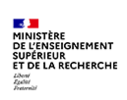Electronics and Computer Engineering (EII)
Presentation
Courses: 3 main subject areas
- Analog and digital electronics
- Industrial computing (hardware and software)
- Signal processing and Automation
Disciplines
Analog and digital electronics (combinatory, sequential and programmable logic, programming in VHDL)
Industrial computing: computer hardware, microprocessor systems, programming and languages, object-oriented programming, operating systems, real time systems, embedded operating systems, and communication buses
Signals and systems, automation, analog and digital signal processing, statistical signal processing and image processing, Mathematics
The training is punctuated by courses, tutorials, practical work, internships and projects.
Specifics
Course benefits
- practical work and projects;
- conferences, company visits and work placements;
- compulsory international mobility.
Internships in France and abroad
- 3rd year: 2-month work placement;
- 4th year: 3-month work placement;
- 5th year: 5-month end-of-study project placement.
Examples of internships
- detection and tracking of people using video surveillance ;
- improvement of coding techniques in the H264 standard;
- WEB development for an airline company's internet portal;
- development of LED lighting systems for cars;
- control of contactless smart card readers;
- design and development of electronic cards for high-performance infrared cameras;
- analysis and testing of automatic porting tools for mobile Java applications;
- embedded evolutionary robotics: the (1+1)-restart online adaptation algorithm.
Double degree
- International: double degree with University Pontifica Catolica de Rio de Janeiro (Brazil), University de Campinas (Brazil), University of Sao Paulo (Brazil), Ecole de Technologie Supérieure de Montréal (Canada), Northwestern Polytechnical University (China), University Strathclyde (Scotland), University Polytechnique de Madrid (Spain) and Politecnico di Milano (Italia) ;
- Engineer-Manager in partnership with 3 management schools;
- Master of Science for further studies in doctoral school.
More than 20% of the courses are open courses
- languages;
- culture and communication;
- economics and management;
- physical education and sport.
Opportunities
Multi-skilled and innovative, EII engineers work in the fields of electronics, industrial computing, signal processing and automation. Their versatility gives them access to a wide range of professions: research and development, methods and testing, technical sales, etc.
Careers
- research and development engineer;
- design engineer and technical consultant;
- operations, maintenance, testing, quality and safety manager;
- project or program manager;
- business engineer;
- consultant.
Sectors of activity
- television, multimedia;
- electronic and computer equipment;
- aeronautics and space;
- transport (automotive, rail);
- energy sector;
- medical;
- defence.
After 5 years of higher education (Master's degree or engineering diploma), you may wish to continue your studies with a view to obtaining a doctorate.


